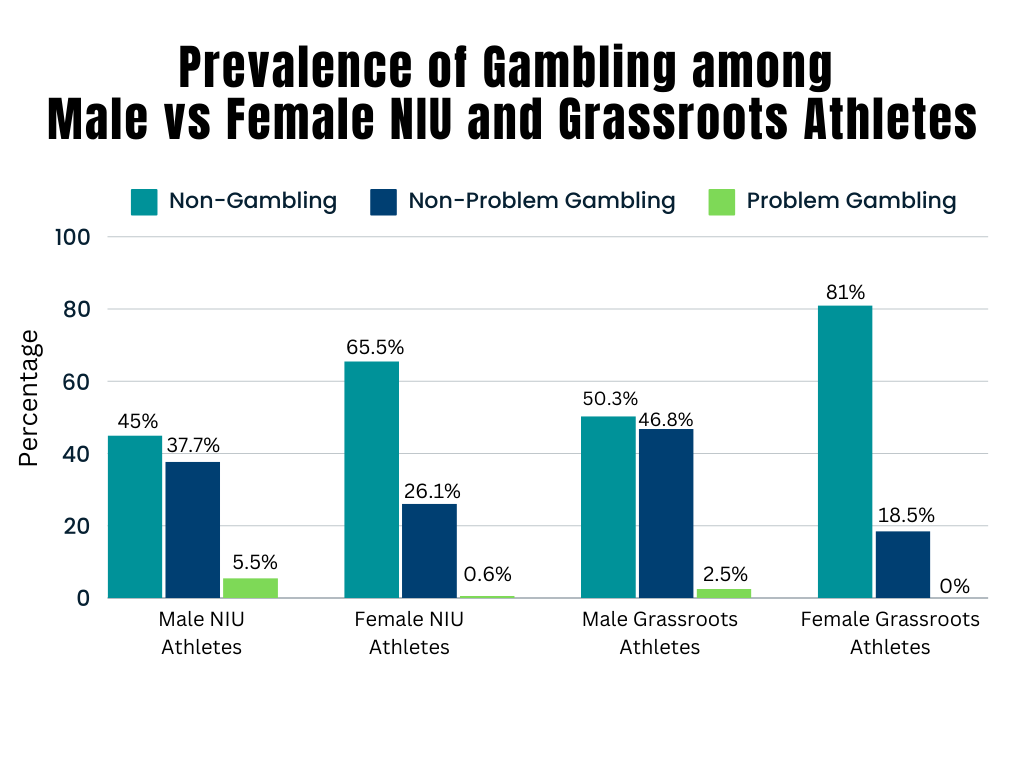Professional adult athletes in Europe are more likely to gamble and are at an increased risk of problem gambling compared to non-athletes. This is potentially due to significant social and financial interrelations between sports and gambling. However, there is less known about gambling among younger athletes in Europe. It is especially important to address gambling within this age group because gambling at a young age is associated with an elevated risk of problem gambling and poorer mental health outcomes. This week, The WAGER reviews a study by Maria Vinberg and colleagues that examined the prevalence of problem gambling among young athletes at different skill levels in Sweden.
What were the research questions?
(1) Does the prevalence of problem gambling differ between male and female athletes who compete at different skill levels of their sports in Sweden?, and (2) Among young athletes, how do risky drinking and social acceptance of gambling relate to problem gambling?
What did the researchers do?
The authors recruited 1,636 athletes from the National Sports Education Program (“NIU” in Swedish) and 816 grassroots athletes, all aged 16 – 20 years old, to participate in this study. NIU athletes practice sports in connection with school and compete at an elite level, while grassroots athletes practice sports outside of school and compete at a non-elite level. To measure problem gambling and risky alcohol consumption, participants completed the Problem Gambling Severity Index and the AUDIT-C, respectively. The researchers also created a questionnaire to measure how accepting participants’ friends and family members were about gambling (e.g., “Gambling is important to my family”, “My classmates talk about gambling”).
What did they find?
The prevalence of problem gambling was higher among males compared to females for both groups of athletes (see Figure). The prevalence was also higher among male NIU athletes (5.5%) compared to male grassroots athletes (2.5%). While problem gambling among female athletes was very low, female NIU athletes were more likely to gamble in a non-problematic way than female grassroots athletes (26.1% vs. 18.5%).
Additionally, risky alcohol consumption was associated with problem gambling among both groups, especially among NIU athletes. Among NIU athletes, those who reported risky drinking had more than twice the odds of problem gambling than those who did not report risky drinking. Problem gambling was also associated with several aspects of gambling acceptance, including having classmates who talked about gambling and having family/friends who viewed gambling as important.

Figure. Prevalence of gambling and problem gambling among male and female NIU (i.e., elite) and grassroots (i.e., non-elite) athletes. Click image to enlarge.
Why do these findings matter?
Gambling is prevalent among young athletes in Sweden, particularly among elite male athletes. This study suggests that they are especially vulnerable to developing problem gambling if they have family, teammates, or coaches with positive attitudes towards gambling. Thus, it is important to educate young athletes about the risks of gambling and to create targeted resources that address various contextual factors (e.g., school and team environments) that affect them. The NCAA’s sports wagering e-learning module and substance misuse prevention program are two examples of this type of education program.
Every study has limitations. What are the limitations in this study?
This study was conducted in Sweden and only included athletes from a few selected sports (including ice hockey, football, floorball, golf, and cross-country skiing), so the results might not be generalizable to other countries with different gambling attitudes or to athletes from different sports. Additionally, the researchers only used self-report measures, so the responses might be impacted by social desirability bias.
For more information:
Individuals who are concerned about their gambling behaviors or who simply want to know more about problem gambling may benefit from visiting the National Council on Problem Gambling or Gamblers Anonymous. Additional resources can be found at the BASIS Addiction Resources page.
— Annette Siu




